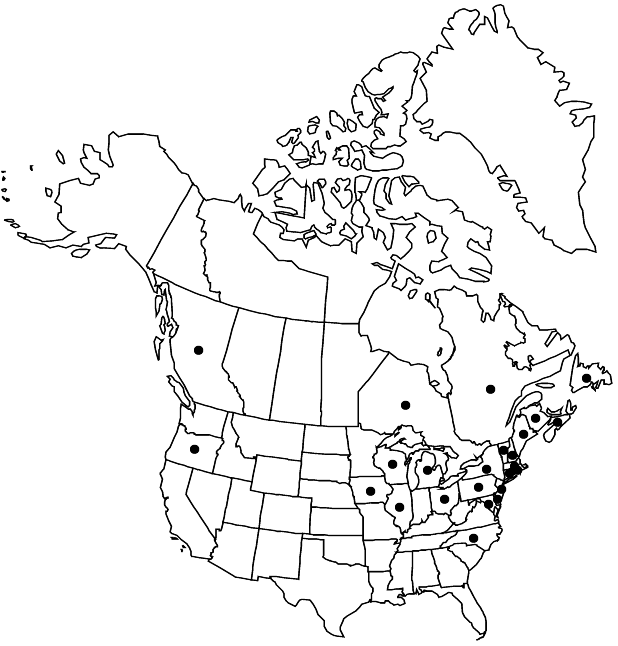Difference between revisions of "Lysimachia punctata"
Sp. Pl. 1: 147. 1753 ,.
FNA>Volume Importer |
FNA>Volume Importer |
||
| Line 48: | Line 48: | ||
|publication year= | |publication year= | ||
|special status= | |special status= | ||
| − | |source xml=https://jpend@bitbucket.org/aafc-mbb/fna-data-curation.git/src/ | + | |source xml=https://jpend@bitbucket.org/aafc-mbb/fna-data-curation.git/src/f6b125a955440c0872999024f038d74684f65921/coarse_grained_fna_xml/V8/V8_629.xml |
|genus=Lysimachia | |genus=Lysimachia | ||
|species=Lysimachia punctata | |species=Lysimachia punctata | ||
Revision as of 20:30, 24 September 2019
Stems erect, usually simple, 1.5–10 dm, sparsely stipitate-glandular and pubescent; rhizomes slender to thickened; bulblets absent. Leaves usually whorled; petiole 0.5–1.6 cm, eciliate; blade lanceolate or ovate, 5–10 × 1–4 cm, base rounded to obtuse, decurrent, margins entire, plane, pubescent, apex acute, surfaces reddish-punctate at least marginally or apically, stipitate-glandular and densely pubescent; venation pinnate. Inflorescences axillary, solitary flowers or verticils. Pedicels 1–3.5 cm, pubescent and sometimes also stipitate-glandular. Flowers: sepals 5, calyx not streaked, 5–8 mm, stipitate-glandular at least apically, lobes narrowly lanceolate, margins thin; petals 5, corolla yellow, not streaked, rotate, 12–19.5 mm, lobes with margins entire, apex acute to rounded, stipitate-glandular marginally and sometimes also distally; filaments connate 2–2.5 mm, shorter than corolla; staminodes absent. Capsules 4–5.5 mm, dark reddish-punctate, glabrous. 2n = 30.
Phenology: Flowering summer.
Habitat: Old fields, roadsides, stream banks
Elevation: 0-600 m
Distribution

B.C., N.B., Nfld. and Labr. (Nfld.), N.S., Ont., Que., Conn., Del., Ill., Iowa, Maine, Md., Mass., Mich., N.H., N.J., N.Y., N.C., Ohio, Oreg., Pa., R.I., Vt., Wis., Europe.
Discussion
Lysimachia punctata has been collected as an adventive on Prince Edward Island and once in Nebraska in 1971 from a colony that has been extirpated; it is often grown as an ornamental.
Selected References
None.